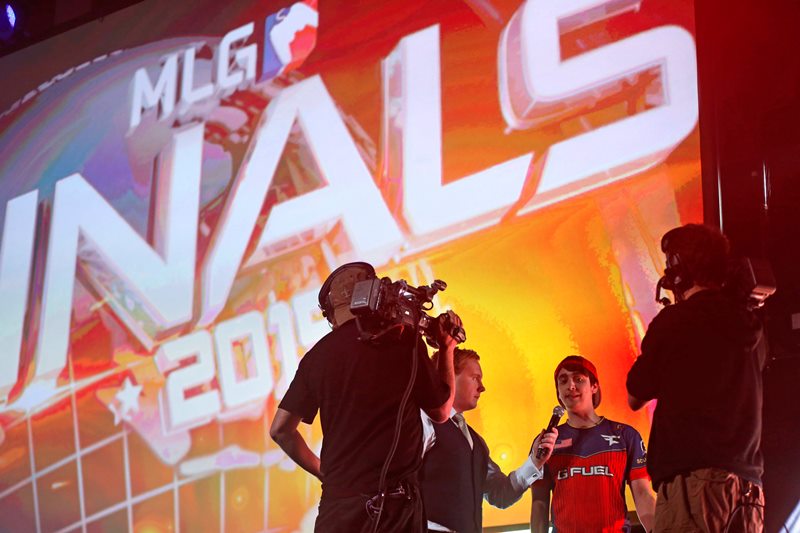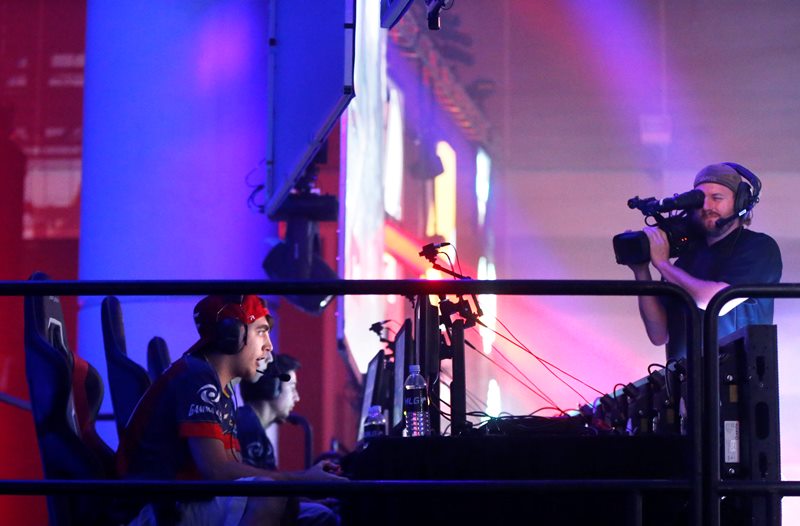NEW ORLEANS – It was a tense moment in the opening rounds of Major League Gaming’s World Finals. OpTic Gaming, arguably the best Call of Duty: Advanced Warfare team in the world, was losing to a relatively unknown European team.

“You still have the European team in the lead but OpTic is trying to come back. This is actually really tense. But this is what makes this event so good,” said Ben Bowe, a broadcaster who does commentary for such events, the same way Tony Dungy analyzes football for NBC.
Bowe watched intently in the darkened New Orleans convention centre as the four-man teams blasted away at each other on their game consoles, headphones covering their ears, until OpTic managed to pull out the win.
READ MORE: UBC Esports team wins $180,000 scholarship in ‘March Madness’ of video game competitions
Bowe is one of thousands of people converging this weekend on New Orleans for Major League Gaming’s World Finals to watch players from around the world compete in games like Call of Duty: Advanced Warfare and Dota 2. Major League Gaming, founded in 2002, is one of the biggest operators in the growing e-sports (electronic sports) market that involves both online events and live tournaments like this weekend’s.
The event has many of the trappings of a major sporting event from broadcasters like Bowe who provide running commentary on tactics and strategies used by the players, areas backstage where players can warm up their hands before matches, and large screens that show images of the players for the audience.

Get breaking National news
But instead of a basketball court or boxing ring, the players sit on an elevated stage looking at a screen in front of them while the game is also shown on a large screen overhead so the audience can watch.
James “Clayster” Eubanks competes with his team at the Major League Gaming World Finals in New Orleans, Friday, Oct. 16, 2015.
Hundreds of players – professionals and amateurs – are taking part in the three-day event. Sundance DiGiovanni, the CEO of Major League Gaming, said the games are streamed on the company’s website and millions more will likely watch online over the weekend around the world.
Over the past decade, e-sports has grown from a relatively small market to a multimillion dollar industry that pulls in millions of spectators both online or in person to events like this one or the Call of Duty championships in March.
This is the first time the MLG tournament has been held in New Orleans, and supporters like the economic development agency GNO Inc. hope it will help develop the city’s burgeoning tech sector.
READ MORE: Vancouver gamer shares $6.6 million prize after winning international Esports championship
“Conferences build the brand of a region for technology. They literally attract tens of thousands of people,” said Michael Hecht, who heads GNO Inc.
The players are competing for more than $500,000 in prize money. James Eubanks, 23, who is known in the e-sports world by the name “Clayster,” is on track this year to make as much as a quarter of a million dollars through tournament winnings, YouTube ads and other revenue streams. At the beginning of his career, his mother wasn’t particularly supportive of a habit that required hours and hours of video games a day.
“She stopped taking away my Xbox after I got my first check,” he said.
He doesn’t like to describe what the gamers do as a sport since there’s not a lot of physicality to it. But like pro athletes he pours over film – in his case YouTube videos – of opposing teams to learn their strengths and weaknesses. Citing scientific studies that show adrenaline improves reaction time, he tries to be very energetic to pump up his teammates. The yells he lets out when his team does well also serve to intimidate the opposition.
He starts his morning with hand exercises to make sure he doesn’t get tendinitis and estimates that he plays 40 to 50 hours a week, often scrimmaging online with his teammates in New York and California.




Comments